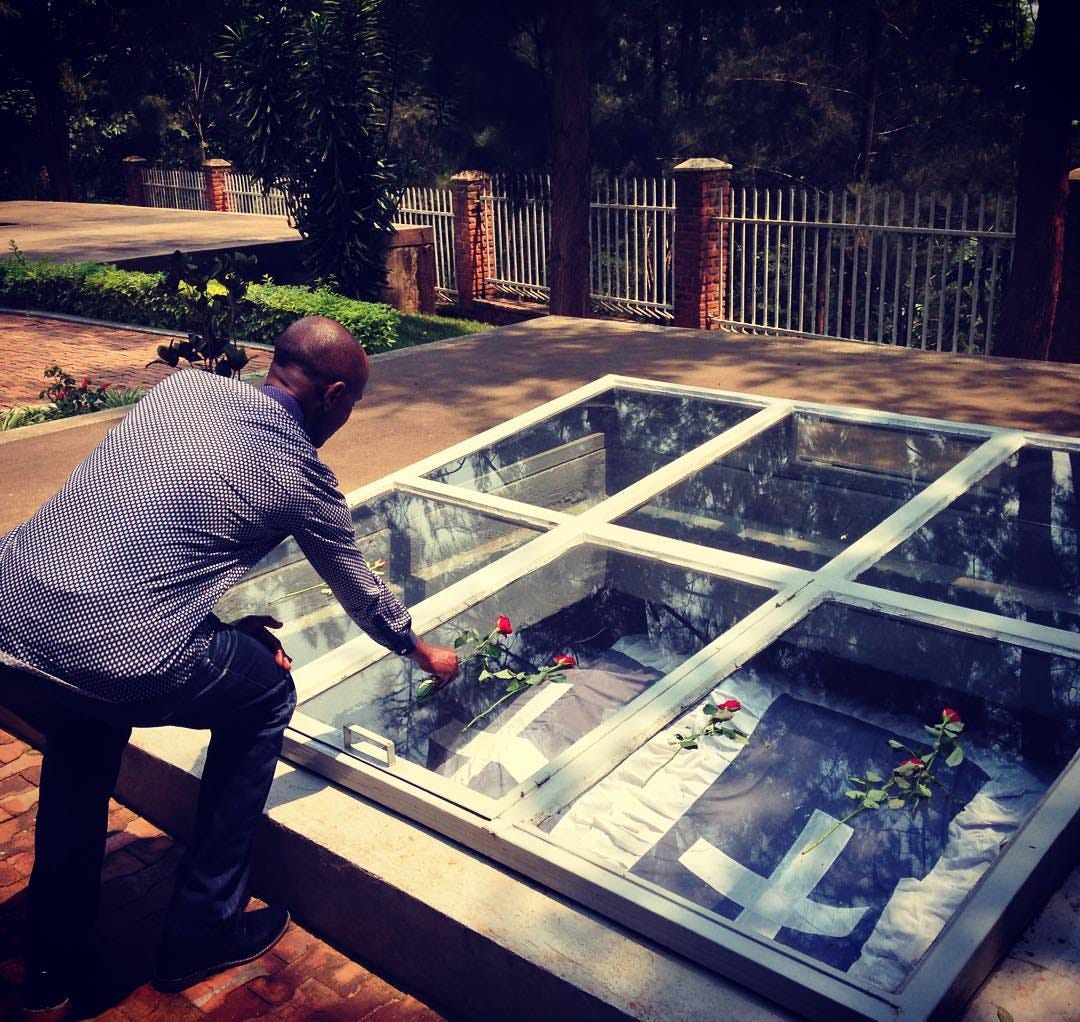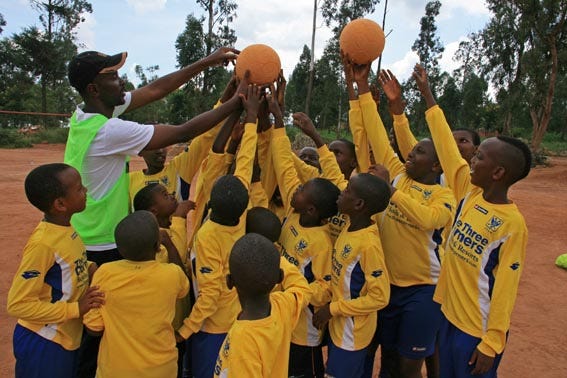#100days100RwandanStories it’s a series of stories that details the profound impact of
 The Genocide against Tutsis on diverse personalities ranging from scholars, survivors, politicians and journalists and many other individuals that had direct or indirect role either as victims, perpetrators and actors. The initiative is championed by Survivors Tribune an awareness and educational platform which focuses on the awareness raising and promotion of educational activities using stories from survivors of various global conflicts from Rwanda, Sudan, Syria and elsewhere.
The Genocide against Tutsis on diverse personalities ranging from scholars, survivors, politicians and journalists and many other individuals that had direct or indirect role either as victims, perpetrators and actors. The initiative is championed by Survivors Tribune an awareness and educational platform which focuses on the awareness raising and promotion of educational activities using stories from survivors of various global conflicts from Rwanda, Sudan, Syria and elsewhere.
The initiatives stems from Survivors Tribune belief that storytelling is a crucial part of the healing process and a great tool for education and raising awareness. We want to encourage survivors to come forward and use their stories to empower themselves and preserve the memories for future generations. In other words survivors are empowered during the process of empowering future generations.
The power of storytelling is also key to prevent genocide denial which is the last stage of genocide process and one that the genocide against the tutsi in Rwanda is currently facing and needs to be dealt with squarely.
As they say “The last victim of any genocide is the truth’’ and we have an obligation to protect it if we really want Never Again not to be Again and Again. We owe it to our lost ones but more importantly to our future generations if they are really to be the change we want them to be.
The Rwanda genocide against Tutsi claimed over one million lives in 100 days between April and July 1994. We start the series with the story of Eric Eugène Murangwa, the Founder of Survivors Tribune nicknamed ‘Toto’, he was a professional football player in his home country Rwanda when tension finally boiled over. He recounts how he survived in large part due to his role as goalkeeper for Rayon Sports, one of the country’s biggest football teams.
Football my saviour.
In the early hours of April 7, I am woken by the sound of bullets and bombs coming from all corners of Kigali, and soldiers who have come looking for weapons swamp my neighbourhood. About five soldiers break into our house. I only escape death when one of the soldiers recognises me as ‘Toto’, the goalkeeper of Rayon Sports. A few weeks before, my team has played in CAF — the Confederation of African Football Cup — and has eliminated El Hilal from Sudan, one of Africa’s football giants. For about three hours this win is a very significant moment in Rwandan history. Rwandans become united, with scenes of celebrations that bring Hutu and Tutsi people together. The El Hilal game is a big factor in why this soldier spares my life.
In 1994 I am a young goalkeeper for Rayon Sport, one of Rwanda’s biggest football teams. When my teammates and I go for training at Mumena Stadium on April 6, it is a normal afternoon in Kigali, if a normal afternoon includes explosions and grenades and shootings. Still, I don’t have the slightest idea that this day would become the worst in Rwandan history, a day to reduce every single Rwandan to tears. As the killings intensify, my teammate, Munyurangabo, makes sure that I and a number of other people are all looked after by providing protection, supplies and hope. He goes out to look for food to feed us all. He gets information that enables some of us to escape to the safe area of the city. He even goes the extra mile to negotiate with killers when they want to attack us and, in my case, he pays his own money to free me and some of my colleagues from the Interahamwe. Out of more than ten people who are sheltered at Munyurangabo’s house, only Munyurangabo himself loses his life. Munyurangabo is not a Tutsi. He is not even a so-called ‘Tutsi sympathiser’. He is just an ordinary man who happens to be an incredible human being, with courage and humanity that most people inside and outside Rwanda lack, at a time when people need it most.
Eric Eugene Murangwa, Survivor, Founder of Football for Hope Peace & Unity and Survivors Tribune.

Football saved his life. It transcended ethnic differences and ultimately gave him hope for the future. It is this faith in the game that led Murangwa to establishing the organisation Football for Hope, Peace and Unity. It uses football as a tool to promote tolerance, unity and reconciliation among Rwandan youth in order to prevent tragedies like the 1994 genocide from occurring again in the future.
Watch the trailer of the recently released documentary Soccer My Saviour below:
Survivors Tribune is encouraging survivors and those who have had a first hand experience in the Rwandan genocide against the tutsi such as those that participated in the humanitarian operations, descendants of the victims and other Rwandans who may have a story to tell that may be directly related to the consequences of the genocides and will publish them as part of the #100days100RwandanStories during the Kwibuka23 commemoration period.
Guideline to send your story:
- It’s not about the length or depth of your story , it can range from 100 words to 1500 words or above
- There is no set rules of what to say, we are interested in your personal story.
- If you need help structuring your story ,please do get in touch.
- Your story will not be published without your consent and approval.
- Add images that collaborate plots in your story.
If you need any special assistance please get in touch by emailing us at info@survivorstribune.org or contact our Content & Strategy Director in charge of curating and editing of #100LifeStories at jo.ingabire@gmail.com
You can also contact or follow us on social media, using these links and share anything that you like or inspires you!


no replies